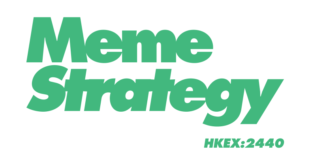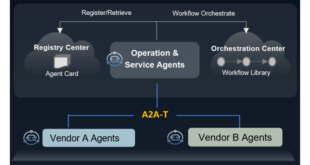SINGAPORE –
Media OutReach Newswire – 14 November 2024 – In the rapidly evolving landscape of financial technology (fintech), traditional financial assets and crypto assets are no longer distinct and separate. The growing understanding and acceptance of cryptocurrency assets have since blurred the two asset classes, leading to more advanced, interconnected financial systems, says the Swiss Business Hub Southeast Asia + Pacific, which represents Switzerland Global Enterprise.
Today, it is easier to integrate traditional and crypto asset management, albeit with some caveats. These principally include regulatory compliance and clearance, market volatility, and developing and implementing agile solutions to facilitate new amalgamation.
It is no surprise then that the rapid ascent of the Swiss fintech industry is to be expected. This rise is reflected in the annual European Fintech Index rankings, where Switzerland edged to the 2nd spot in 2024, one notch higher from 2023. This was driven by the nation’s continued strides in creating favourable fintech-related regulations, being more friendly to fintech startups, among a host of other factors.
According to the
IFZ FinTech Study 2024 report undertaken by Lucerne University of Applied Sciences and Arts, these market players have been able to sustain themselves at the forefront because their new innovative solutions have proven to be their ace in the hole.
The report adds that “although (Swiss) fintech has developed from a niche market into a significant provider of innovations for traditional financial service providers, new technological concepts are opening up ever more potential for optimising the financial services value chain”.
In essence, Swiss fintechs have earned their stripes for being internationally acclaimed for their robust, time-tested reliability and strict adherence to regulatory frameworks. They are able to provide a clear competitive edge in navigating the industry’s complex and dynamic environments.
Technological-Neutral Approach Powers Innovation
Within this context, as the world races to regulate high-level AI financial systems, Switzerland is taking a more “tech natural” approach. This strategy is becoming even more important as nations and businesses increasingly confront emerging realities like the rise of fraud and scams, leveraging tech and automation to raise internal productivity and efficiency, the desire by customers for a more personalised experience, while managing new and yet unseen risks.
With an eye of these, the decade-long proliferation of Swiss fintechs is linked to the country’s favourable economic and business landscape. For a start, the hallmark of the Swiss regulatory system lies in its focus on taking a technology-neutral stance, with the goal of providing a level playing field for both fintech innovators and traditional financial institutions.
Its DNA lies in encouraging innovation while emphasizing financial stability. This framework enables companies to be pragmatic, flexible and adaptable in developing and implementing new technologies and models, as long as they adhere to core principles.
Furthermore, a key thrust of this technological neutrality relates to the fact that regulations are designed to be neutral with regard to the technology use, focusing instead on the risks and activities. The independent Swiss Financial Market Supervisory Authority FINMA regulates only when this is necessary to meet its supervisory goals and with a view to the risks.
In operational terms, the Swiss regulators have no preference for any particular fintech business segments, especially with regard to the technologies being developed, adopted and implemented. Whether a financial service is provided through traditional brick-and-mortar channels or leverages the latest in blockchain and artificial intelligence, it is subject to the same set of regulatory requirements.
This is in contrast to other environments where control and close monitoring from regulators are maintained.
Equally important for aspiring fintechs is the existence of the
de minimis and related exemptions, which is pertinent to market players, depending on the scale and nature of their fintech company’s business. These exemptions are known to provide some relief to certain fintech operators.
Swiss Approach Propels AI Pursuits
The proliferation of AI is now mainstream discussion, with its fair balance of advocates and detractors. The latter believe, if AI is unchecked, there will be infringements on privacy and security, greater misinformation, more biases and discrimination, ethical lapses, amongst others.
The Swiss authorities have been guided by their proven, age-old principle of mitigating various risks. This approach, driven by pragmatism and being business friendly, has underpinned its continued success as a strong and prosperous business location that attracts global companies in many sectors. Switzerland’s transparent and stable regulatory framework is one of the factors that has kept the country ranked first in the WIPO Global Innovation Index for 14 years.
Leading advocates like the prestigious Swiss Federal Institute of Technology (ETH Zurich) which recently organised its annual
AI Policy Summit, has explained that the way forward is not about inhibiting emergence of new AI technologies. Instead, it is about taking a deep look at AI and mitigating risks by leveraging on legislation to address gaps.
The goal is to carefully balance sensible regulation with strong research and this strategy underlies Switzerland’s approach.
The verdict on AI regulation, especially in the content of the development of the fintech industry, is out in the open. The risks of an unchecked approach are high.
Within this context, Switzerland’s technology neutral, regulatory approach remains par none and offers companies a competitive advantage. Fintechs should leverage on this opportunity to create a global niche.
The writer is Ms Renee Koh, Deputy Head of Swiss Business Hub South East Asia + Pacific, is based in Singapore.
The issuer is solely responsible for the content of this announcement.
Source link
 Odisha Samachar Odisha Breaking News , Odisha Current News , Odisha News
Odisha Samachar Odisha Breaking News , Odisha Current News , Odisha News




